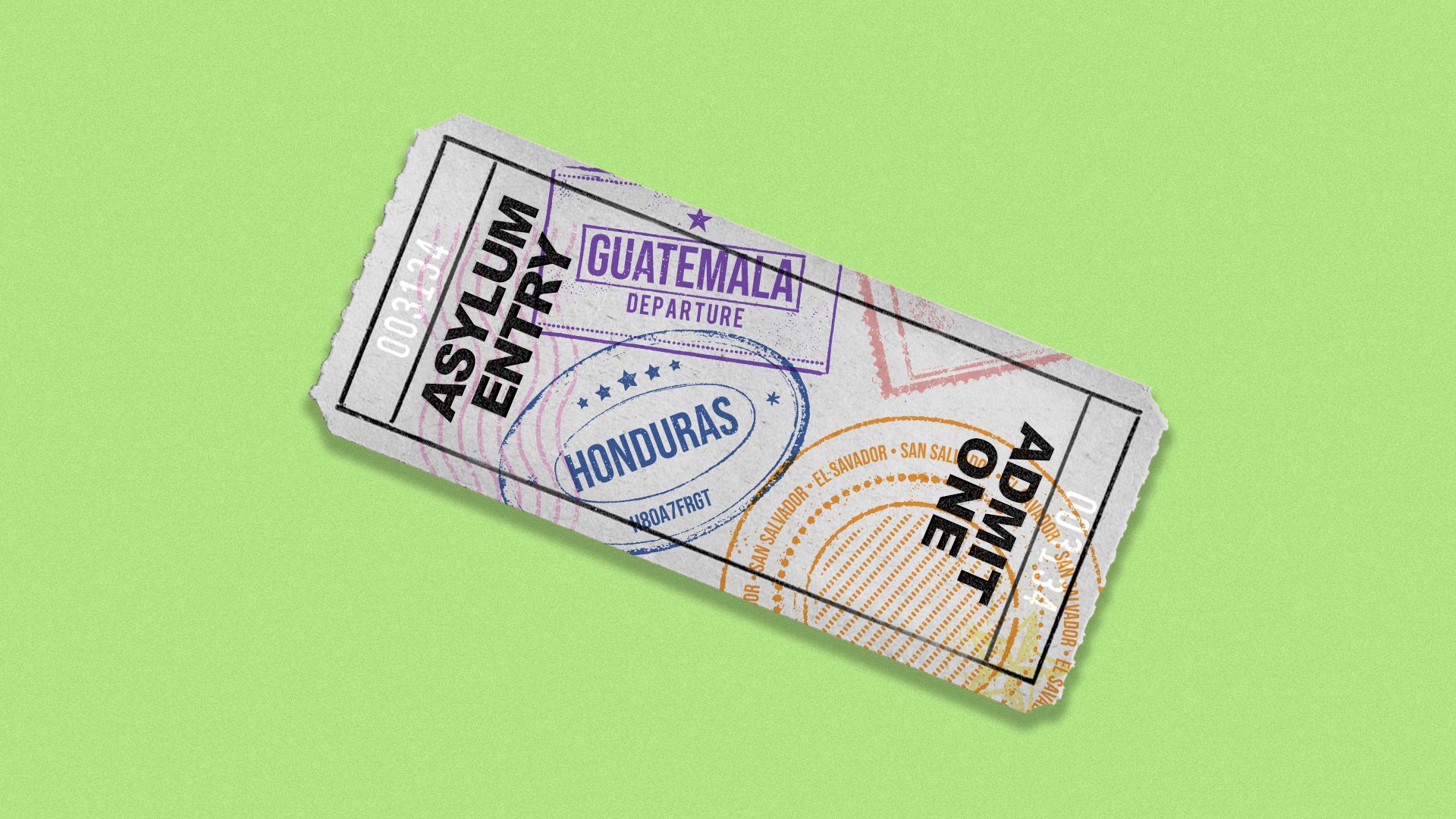Parents of 545 children separated at southern border remain unfound
Add Axios as your preferred source to
see more of our stories on Google.

Illustration: Aïda Amer/Axios
The U.S. cannot locate the parents of 545 migrant children separated under a 2017 pilot program as part of President Trump’s immigration policy, NBC News first reported, citing a filing from the American Civil Liberties Union.
Why it matters: The number of parents who are currently considered “unreachable” is larger than was previously known. Search efforts have grown increasingly difficult given the time that has passed between when the children were released from federal custody and when volunteers started trying to find them.
- That search has been made even more challenging since the outbreak of the coronavirus, during which travel throughout Central America has been restricted.
Flashback: The Trump administration first implemented a pilot program along stretches of the southern border in 2017. During that time more than 1,000 parents were separated from their children, NBC writes.
- In April 2018, the administration formally instituted its "zero tolerance" policy, which enforced criminal prosecution of immigrants who crossed the U.S.-Mexico border illegally and children were separated from their families as their parents faced charges.
- That policy was challenged in court, and two months after it was adopted, the president signed an executive order ending the policy.
- But, but, but: Families were still being separated a year later, Houston Chronicle reports.
By the numbers: The administration said in October 2019 that an additional 1,556 children had been separated from their families in 2017. Roughly two-thirds of those parents were deported to Central America without them, per the ACLU.
- As of this January, U.S. officials said 4,368 children had been separated from their parents or guardians under the policy, according to the Los Angeles Times.
- Court-appointed attorneys and organizations have tracked down the parents of more than 550 children from the 2017 pilot program. Of those, about 25 will be able to return to the U.S. for reunification NBC writes.
What to watch: As part of the lawsuit over family separations in the Federal District Court in San Diego, the search will continue and the government must share details about any families separated at the border, the New York Times reports.
